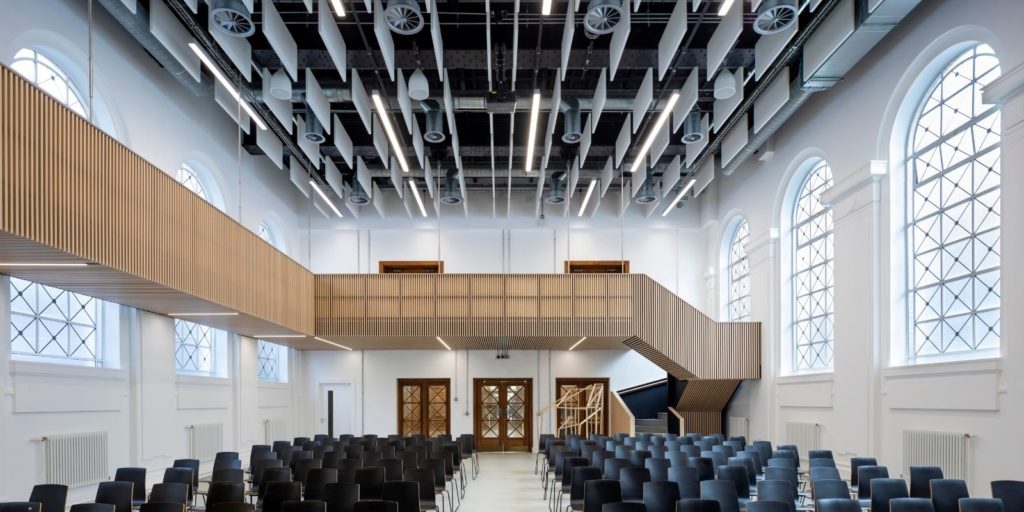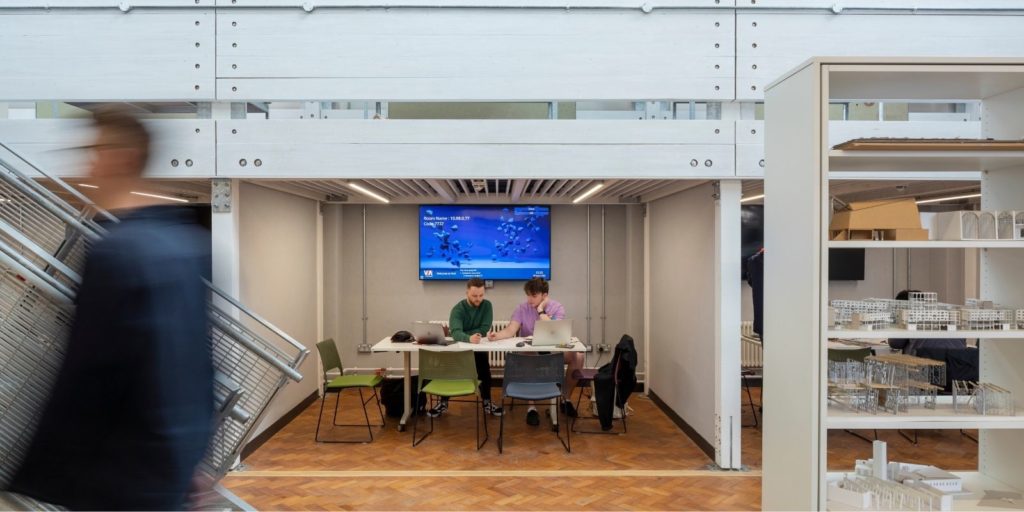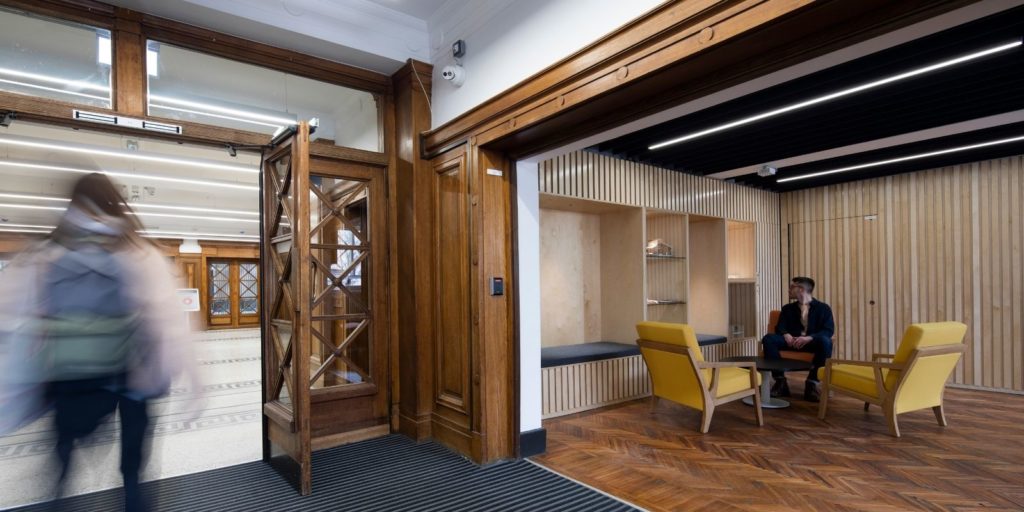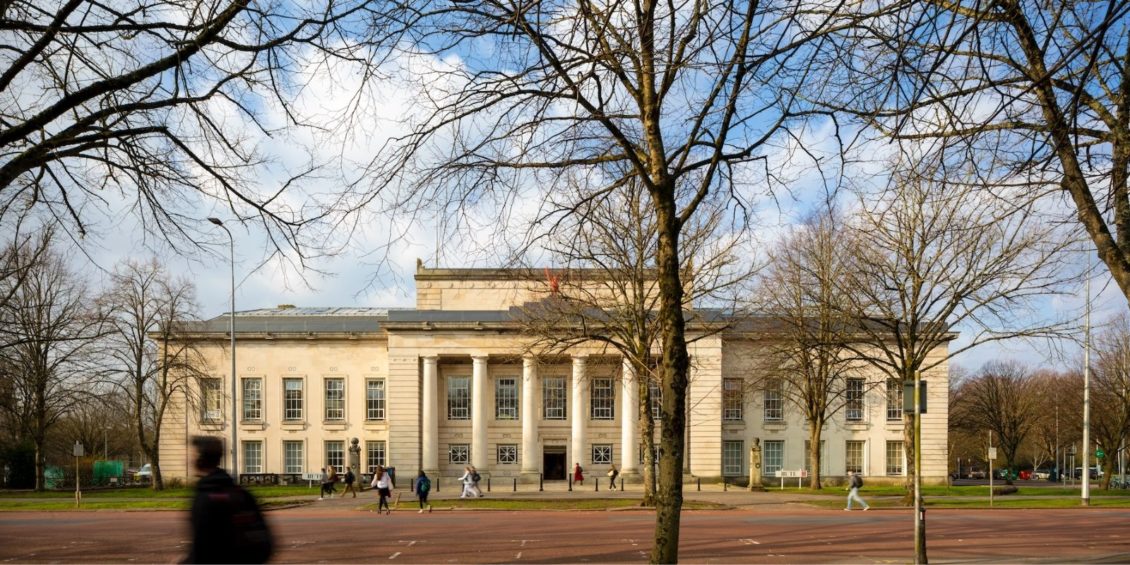The extensive refurbishment of Cardiff University’s Bute Building – home to the internationally-renowned Welsh School of Architecture (WSA) for more than 100 years – has been completed.
The project has formed part of Cardiff University’s biggest campus upgrade in a generation, which has seen more than £600m invested in research and teaching facilities. Originally designed by Sir Percy Thomas, the Grade II listed Bute Building has undergone a £9.7m renovation that has completely modernised the facilities with the addition of new studios, offices, workshops and a state-of-the-art exhibition hall. Global, interdisciplinary design practice, BDP, was the project architect.


The refurbishment has been designed alongside a new offering of postgraduate and undergraduate programmes, as well as to provide an enhanced studio culture within the WSA. It has included extensive renovation of the building’s interiors, such as the creation of larger, lighter and more flexible studio spaces, and the repair and upgrade to the roof.


The WSA’s workshop facilities have also been relocated and significantly expanded with an enlarged wood and metal workshop, digital fabrication facilities to produce models using the latest laser cutting, 3D printing and CNC (Computer Numeric Control) technologies, and an enhanced space for the WSA’s robotic arm.


At the front entrance of the building, an exhibition space and Living Lab have been created to help strengthen links between the staff and students at the WSA, architectural practices and local communities.
The project has also helped to uncover and reinstate the original Assembly Hall, a two-storey space at the heart of the building, which was previously concealed following its conversion to a lecture theatre in the 1990s. A key feature of the Bute Building’s heritage and Grade II listed status, this new Exhibition Hall, which opened last month, will be the centrepiece of the building.
Dr Juliet Davis, Head of the Welsh School of Architecture said: “I am absolutely delighted to be able to showcase the building to the public and to officially mark the start of a new era for the Welsh School of Architecture. The Bute Building has been our home since our inception in 1920, and so this is the perfect way for us to celebrate more than 100 years of existence.
“As the adaptation of an historic building, this refurbishment embodies the School’s long-held ethos of sustainability. We hope it will foster creativity and collaboration, incubating new ways of thinking, researching, learning, writing and making Architecture for decades to come.”
Nick Durham, architect director at BDP in Cardiff, himself a graduate and former tutor on the Masters degree course at the WSA, said: “It has been a privilege to play a part in shaping the future of this historic building where generations of architects have been and will continue to be supported and inspired for many more decades to come.
“Key to our approach was the intelligent and sensitive repurposing of the building, based on a thorough understanding of the original Sir Percy Thomas design. This has helped ensure that our new interventions work with the building fabric to deliver flexible and sustainable learning environments based on the future needs of the School.”
BDP introduced natural ventilation towers to the roof of the second floor studios, which help draw fresh air into the lower levels of the building and improve the quality of the internal environment. Meanwhile, a new hybrid studio space in the teaching area allows individual and group tutorials to run concurrently thanks to the introduction of adaptable infrastructure and acoustic treatment to walls and ceilings.
This project was delivered in collaboration with Capita (project management), Gleeds (cost management), Aecom (structural and civil engineering) and CPWP (environmental engineering). The main contractor appointed to carry out the works was R&M Williams.









Leave a Reply
View Comments